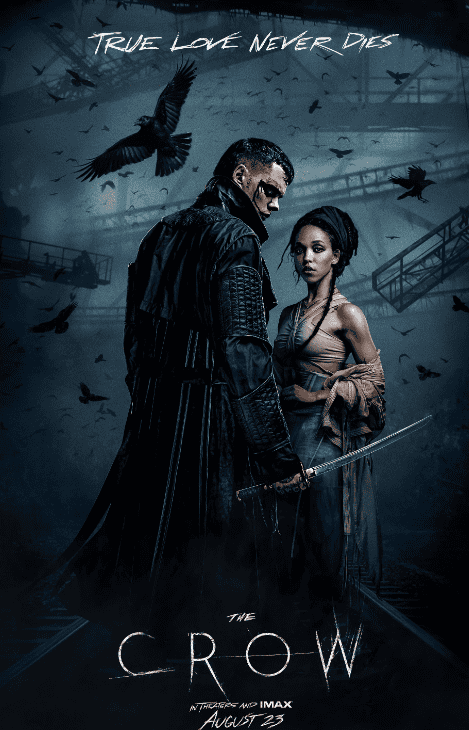As a reimagining of the 1994 film, “The Crow” released in theaters Friday with all the right pieces but was poorly put together.
The premise builds around the murder of Eric Draven and Shelly Webster, a couple that recently fell in love. Eric, played by Bill Skarsgård, regains consciousness in a dreamlike setting as he is approached by a mysterious figure. Eric is told that his love for Shelly has made him immortal, and that he can bring her back to life only if he kills their murderers.
Though the film was advertised as a passionate story of bloody revenge, the majority of the film consists of ambiguous visions and uninteresting dialogue. As Eric’s mission is made clear early in the film, the audience sits through his vapid search for the killers. Eric’s investigation skills are limited to asking where the killers are and looking for more people to ask. As this is most of the film’s dialogue, the script is unstimulating and lacks any truly impactful lines.
However, the film is visually beautiful. Its goth aesthetic pulls the viewer into its darkness using its costume design, setting and supporting soundtrack. Just about every shot of this film could be anywhere from a heavy metal album cover to a surrealist painting. Unfortunately, the quality of a movie tends to suffer when a good script is replaced with a dark color palette; just look at “Doctor Strange in the Multiverse of Madness.”
It is not until the end of the film that there is an exceptional fight sequence. While a performance commences inside an opera house, Eric goes on a bloody rampage in the lobby. The orchestra plays in complete synchronization with the action, with every punch and gunshot occurring on beat. Quite literally, it is the film’s crescendo.
Aside from this one enjoyable scene, the preceding portion of the film is slow and ambiguous. From the start, there are small glimpses of Eric’s traumatic backstory through dreams of his past. Despite the excessive use of these unclear flashbacks, Eric’s backstory is never explained. Furthermore, the audience never even learns anything important about his life. Because of this, he is a protagonist with the character development of an extra.
Everything in this film is frustratingly ambiguous, from the plot, to the characters, to the reason anyone would see it. In his opening monologue, Eric speaks directly to the audience about what it’s like to lose someone you love. Unbeknownst to him, he is simultaneously describing what it feels like upon first sitting down for this movie: “You will know what it’s like to be truly and utterly alone.”









